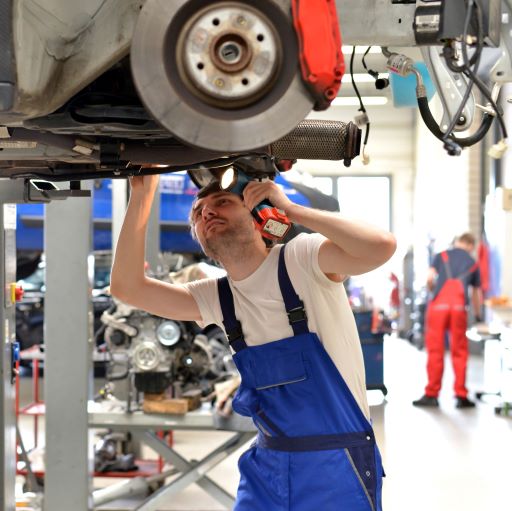Get Quotes
5MinuteInsure.com is not yet available in your area. Check back
soon!
This article has been reviewed by licensed insurance industry expert Moshe Fishman.
In our previous article explaining the Betterment Clause, we broke down what this clause is and how it works. In this article, we go deeper into the reasons why you may be charged a betterment fee, when you might not be charged, if you can negotiate the fee, and if not being at fault in an accident makes a difference.
The last thing anyone wants is to be involved in an accident. Life is stressful enough without having to deal with, not only the accident but the aftermath. For example, repairing your car, replacing damaged parts, or even replacing your vehicle, not to mention any injuries you or your passengers may have suffered. You’ll find yourself wading through a series of follow-up steps like notifying your insurance company, filing a claim, navigating the claim process, seeking repairs, etc.

As the dust begins to settle, you may be surprised to see a betterment charge from your insurance company. This fee is part of what’s called the betterment clause, which may be included in your policy. When it’s impossible for insurers to get your car back on the road without improving its “before accident” condition, this clause keeps the idea of indemnity in check, so policyholders do not profit from the loss, while their position improves.
A betterment charge is a fee that your insurance company may request from you to get your financial situation (and your car) back to the way it was before the accident. Once you file a car insurance claim, and before your car is repaired, your insurer may want you to pay a betterment charge.
Let’s say, for example, that your older car is damaged in an accident while parked on the street. A betterment charge could result if brand new parts, and perhaps better parts, are necessary to replace the damaged areas since original, rebuilt, or refurbished versions are not available.
This type of fee, however, is not automatic since the betterment clause is not necessarily part of every auto insurance policy. You can find this information in the physical damage portion of your car insurance policy or ask your insurance agent or insurer.
If you have a betterment clause as part of your auto policy, you may want to know when you could possibly see such a charge following an accident. However, there is no hard and fast rule that applies to every situation as fees are determined on a case-by-case basis.
There are some factors that could determine whether or not you may be affected by the betterment clause and be expected to pay a charge. The main idea is that whenever the repair to your vehicle puts you in a better position, like new tires to replace damaged tires, you won’t have to replace later, it may result in this type of charge.
Here are some factors that could result in a betterment fee:
The age of your car can play a role in the determination of a betterment charge. An older car may be more difficult than a new vehicle to find original replacement parts. Depending on the part, the repairs may require a newer, more improved version of the original.
In some cases, after an accident, repairs may need to be done due to wear and tear. For example, if damage were caused to your tires that were due for replacement in a few months due to worn treads, new tires would likely be used to repair your vehicle. Similarly, if the repairs also fix a pre existing damage, a betterment charge could result.
Insurance companies may calculate fees based on the type of repair or replacement that is necessary including the date of the original part and/or warranty. For example, if your repairs include the replacement of the car’s battery, an adjuster may prorate the cost of a new battery depending on the date and warranty of your old battery to determine a betterment charge.
Repairs that leave your vehicle in the same state it was in before a collision will not incur a betterment charge. In other words, if original or refurbished parts are used to repair your front end, for example, you would not be charged a fee.
Simply put, if your car’s actual cash value is less than what it would cost to repair it after an accident, your insurance company will cover the actual cash value rather than pay to repair the damages.
In some cases, you may want to negotiate the charge and challenge the adjuster and the measurements that were used to determine the fee. Your insurer may be willing to settle on a mutually agreed upon amount. But be prepared to prove that the parts and repairs won’t increase the value of your car.
Of course, being at fault will only add to your anxiety as you may face medical bills from the other party, damages, and possibly a lawsuit. In the case of an accident that you cause, you are responsible for your own car’s repair. A betterment clause may be a part of your collision coverage for your vehicle, which covers this type of event.
In terms of a betterment fee, it doesn’t matter who’s at fault in the accident. If you benefit from repairs that put your vehicle in a better condition than it was before the accident, you will likely still pay a charge. If the other driver is at fault, they would not be expected to pay this fee if your vehicle gets an upgrade but would be responsible for repairs made with parts of a similar kind or quality.
Check with your agent or insurer when filing a claim for more information.